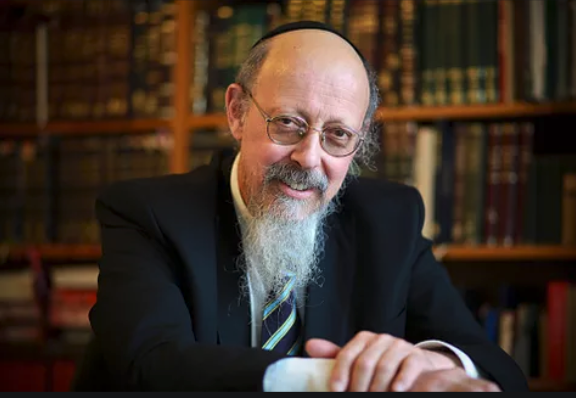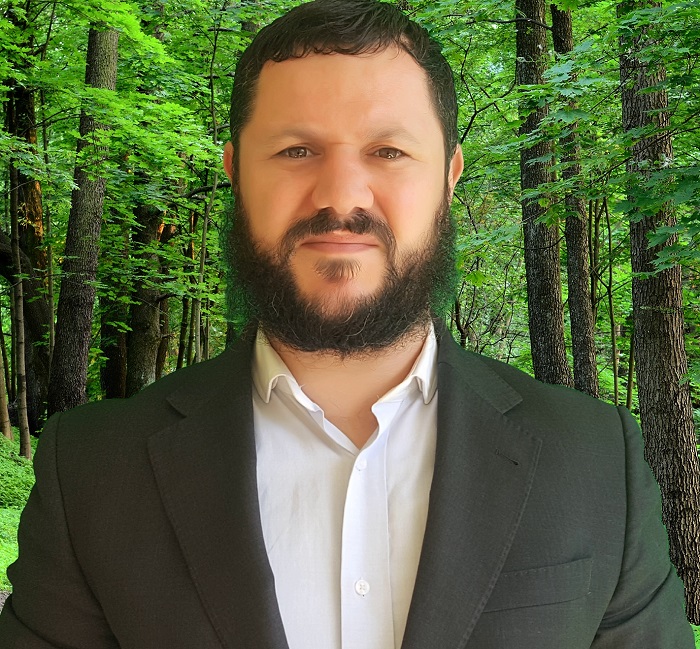
Welcome to the Course
Understand what you will gain and see the syllabus for this course

Universal Ethics and Civilization 101
Enrollment in this course is by invitation only
About This Course
Inspired by the Education and Sharing Day vision that unites strong academics with time-honored values, this course introduces the ethical infrastructure of civilization through the Seven Noahide Laws. Designed for first-year students across law, philosophy, political science, international relations, religious studies, education, and the social sciences, you’ll build ethical reasoning, policy analysis, and cross-cultural understanding—skills that strengthen essays, interviews, and leadership. Graduate with a clear moral lens and a practical edge for your degree and career.
— President Donald J. Trump (Proclamation 9712)
Syllabus
Week 1: Welcome to the Course
- Module 1: From Chaos to Civilization!
- Module 2: U.S. Presidential Proclamations
- Module 3: What is the Purpose of Education?
- Module 4: A Deeper Reality
Week 2: The Origin of Universal Ethics
- Module: The Origin of Human Ethical Behavioral Principles
Week 3: The Soul – The Human Being in the Divine Image
- Module 1: Understanding the Human Soul
- Module 2: The Soul's Knowledge
- Module 3: Revelation
Week 4: Intellect – Rationality and the Noahide Laws
- Module 1: Rationality and the Universal Laws
- Module 2: The Realm of Belief: Faith vs Reason, the Great Debate
- Module 3: The Realm of Reason
- Module 4: The Rightness of Reason
Week 5: Human Personality – The Psychological Matrix of the Noahide Laws
- Module 1: The Structure of Human Personality
- Module 2: Universal Values
- Module 3: The Structure of Human Personality
- Module 4: Universal Values and the Structure of Personality
Week 6: Society – Social Policy and the Noahide Laws
- Module 1: The World-View of Society
- Module 2: Nature and the World-View of Society
- Module 3: The Personal Moral Culture
- Module 4: Social Organization
Week 7: Politics – States, World Society and the Noahide Laws
- Module 1: The State and the Noahide Laws
- Module 2: National Societies and the Noahide Laws
- Module 3: World Society and the Noahide Laws
- Module 4: The Noahide Laws and the Land of Israel
- Course Project & Conclusion
Course Grading
- Quiz Questions – 70%
- End of Course Project – 30%
Who is this course for?
- First-year university students from all academic backgrounds—especially law, philosophy, ethics, political science, education, international relations, religious studies, and the social sciences.
Why take this course in your first year?
Your first year is about discovering the bigger picture: understanding the world you live in and the role you can play in it.
This course explores the ethical infrastructure of civilization through a time-tested framework—the Seven Noahide Laws—as preserved in Jewish tradition and universal moral thought.
Certification
Get certified by the Noahide Academy of Israel – International Institute for the Seven Universal Laws.
Grading Policy (100%)
Quiz Questions – 70%
Short self-check questions appear after each lesson to confirm understanding. Together they make up 50% of your final grade.
End-of-Course Project – 30%
Write a concise 1–2 page essay applying what you learned to a current issue in your community or country. Clear, well-reasoned, well-written work scores best. (A strong one-page essay is better than a low-effort two-page essay.)
Passing & Completion
- Passing score: 80% overall.
- Completion requirement (non-graded): watch each lesson video and read the Key Concepts page before attempting the quiz.
Learning Outcomes
How will this course benefit you personally and academically?
- Gain a deep understanding of universal moral principles that apply across cultures and belief systems.
- Sharpen your ability to analyze ethical dilemmas, public policies, and legal frameworks from a values-based perspective.
- Cultivate skills in critical thinking, ethical reasoning, and cross-cultural understanding—competencies highly valued by employers.
How will this give you an edge in your degree and future career?
By grounding your education in universal ethics and moral law, you will:
- Excel in debates, essays, and interviews with a solid grasp of the ethical dimensions of your field.
- Be equipped to lead with integrity in a world seeking principled solutions to global challenges.
- Enhance your résumé and academic profile by demonstrating values-based learning, aligned with initiatives like Education and Sharing Day.
Course Staff

Rabbi Dr. Shimon Dovid Cowen
Rabbi Dr. Shimon Cowen, son of a former Governor-General of Australia, Sir Zelman Cowen OBM, has a dual background in secular and religious studies. He holds a PhD in social philosophy and received Rabbinic Ordination from Rabbi Chaim Gutnick OBM (Australia) and Rabbi S. Y. Cohen (Chief Rabbi of Haifa, Israel). He has been a Senior Research Fellow at Monash University and Program Director of the postgraduate Rabbinic Institute Kollel Menachem Lubavitch in Melbourne. In 1998 he founded the Institute for Judaism and Civilization, serving as its Director.

Rabbi Dr. Moshe Perets
Rabbi Dr. Moshe Perets serves as Founder and Executive Director of the Noahide Academy of Israel – International Institute for the Seven Universal Laws. Bridging Torah and science, he earned an MD from the University of Louvain in Brussels and an MS in Biomedical Research from the Hebrew University of Jerusalem, and received Rabbinical Ordination at the Chabad Yeshiva of Brussels in 2011. Before focusing full-time on global education, Rabbi Perets conducted stem-cell research at Hebrew University and led humanitarian missions in Africa, guided by a commitment to the physical and spiritual wellbeing of all people. Living in Jerusalem with his wife and children, he teaches the Noahide Code and coordinates the development of Noahide communities across the world in five languages. His work emphasizes rigorous scholarship, practical ethics, and community leadership, equipping students and ambassadors to apply universal moral principles in contemporary life.
Frequently Asked Questions
Which web browser should I use?
For the best experience, use the latest version of Chrome, Firefox, or Safari. Microsoft Edge is also supported. Internet Explorer is not recommended.
How long do I have access to the course?
You have access for the entire duration of the course, plus any additional time set by the instructor. Check your course dashboard for dates.
Do I need prior knowledge?
No background in law or philosophy is required. The course is designed for first-year university students and anyone curious about universal ethics.
Will I get a certificate?
Yes. Students who complete all assignments, quizzes, and the final project will receive a certificate of completion.
How much time should I expect to spend each week?
Plan for about 2–3 hours per week, which includes watching video lectures, reviewing key concepts, and completing quizzes.
What should I do if I have technical issues?
Use the “Help” button in the course navigation or visit the edX Help Center for troubleshooting.
What will I gain practically from this course?
- A clear understanding of the Noahide Laws as a universal code of ethics.
- Skills to analyze real-world issues (law, politics, education, society) through the lens of universal ethics.
- Practice applying ethical principles to challenges in your own country or community.
- Critical thinking tools for discussions on justice, human dignity, and global responsibility.
- A final project that connects course concepts directly to contemporary problems.
- Academic Credits: Recognized in Israel, with future recognition under review by the NCCRS (National College Credit Recommendation Service) in the US.
- Internship Opportunities: Possible placements in Israel and other countries through our international network of partners.
